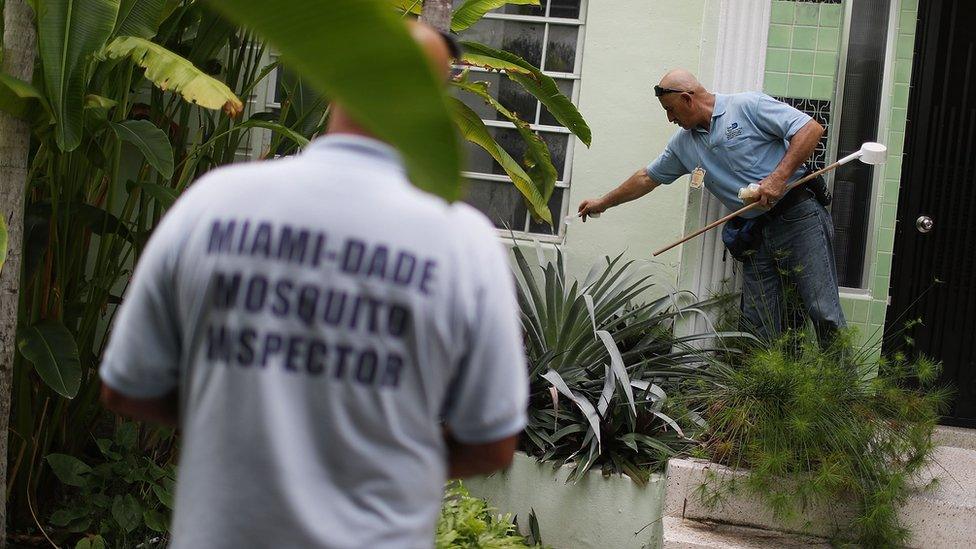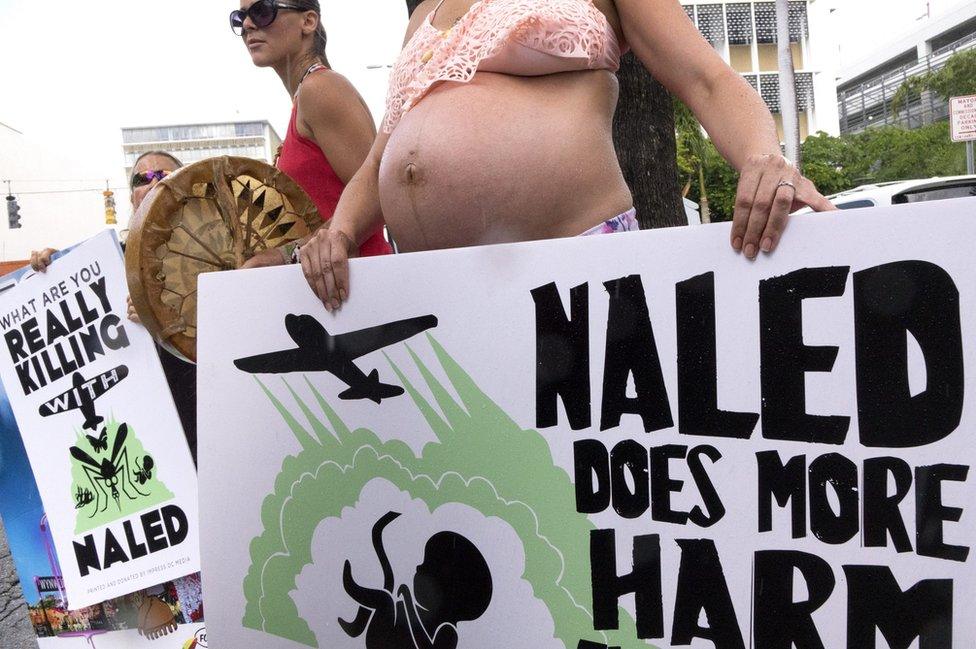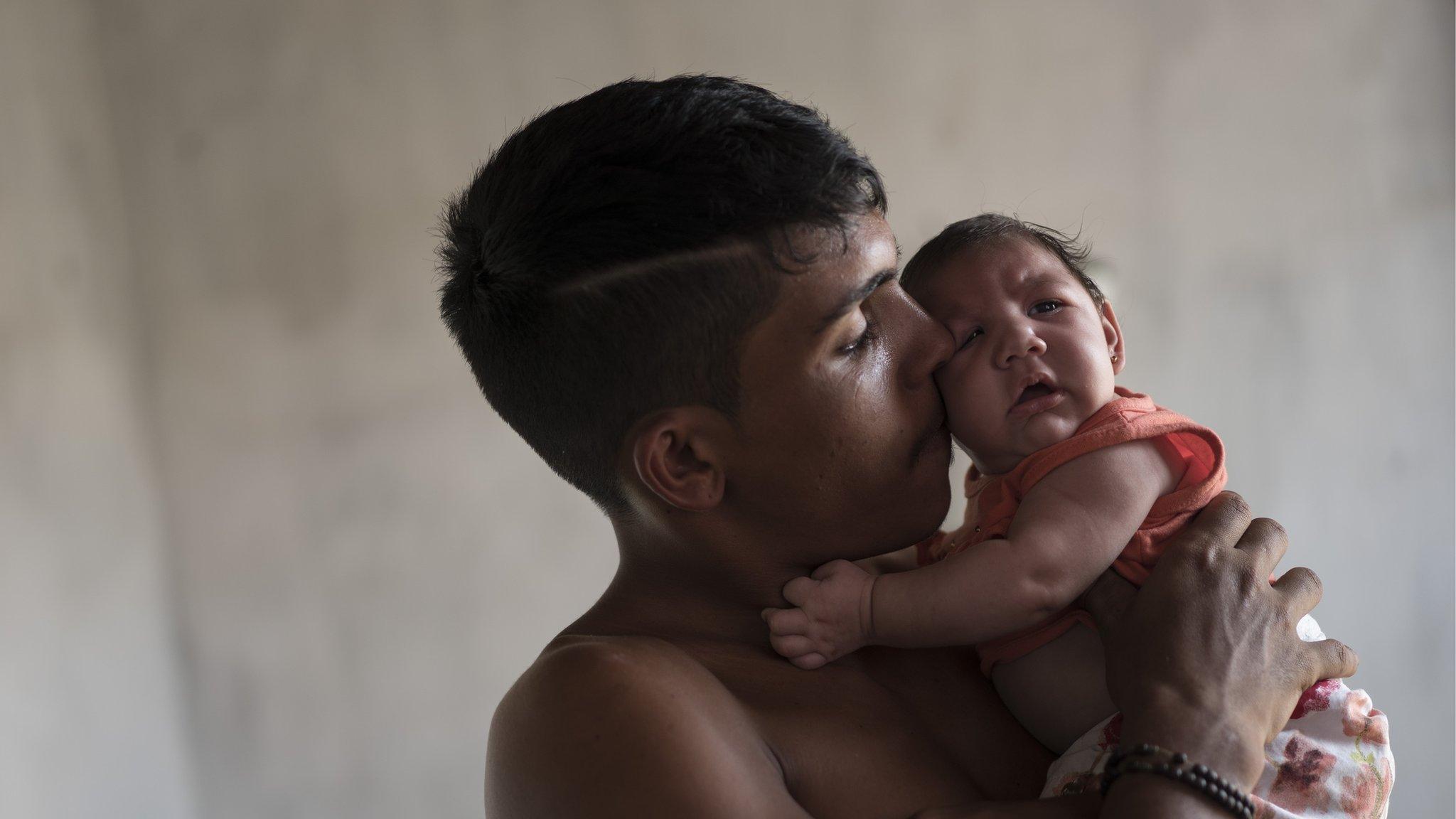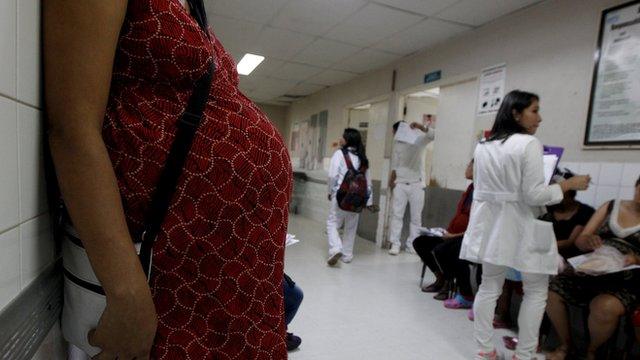Miami's Wynwood district declared free of Zika virus
- Published

Local officials want more assistance from the federal government
The Miami district which saw the first locally transmitted Zika cases in the US has been declared free of the virus.
In the past 45 days, no transmissions have occurred in Miami's trendy Wynwood neighourhood, Florida's governor said at a news conference in the city.
Authorities credit an aggressive campaign of aerial and ground insecticide spraying.
But the virus has spread elsewhere in Florida. Five new cases were recorded on Friday in nearby Miami Beach.
Miami Beach has trebled the area under advisory, now 4.5 square miles (11.7 sq km).
"Everyone should be coming back here and enjoying themselves," Gov Scott told a Monday morning press conference in Wynwood, which was dubbed the US 'ground zero' of Zika.
A small plane has been spraying the Wynwood area of Miami with insecticide
"We had an issue, everybody took it seriously and we solved it."
The Florida Department of Health has recorded 93 total cases in the state since transmissions first began earlier in the summer.
"Wynwood has emerged from this challenge stronger than ever," said Albert Garcia of the Wynwood Business Improvement District.
He also called upon the Centers for Disease Control and Prevention (CDC) to remove their travel advisory for pregnant women.
That advisory was the first time in the CDC's 70-year history that they advised against travel somewhere in the continental US.
Women in Florida are still being advised to cover up if they are considering becoming pregnant.

Miami residents protested against the aerial spraying campaign
Zika has been found to cause a severe birth defect, known as microcephaly, in infants.
It was first detected last year in Brazil, where over 1,800 cases of microcephaly have been recorded.
"Wynwood has emerged from this challenge stronger than ever," said Albert Garcia of the Wynwood Business Improvement District
The Centers for Disease Control and Prevention (CDC) later on Monday removed its travel advisory for pregnant women.
Julia Carneiro has been speaking to expectant mothers.
That advisory was the first time in the CDC's 70-year history that they advised against travel somewhere in the continental US.
Women in Florida are still being advised to cover up if they are considering becoming pregnant.
Zika has been found to cause a severe birth defect in infants known as microcephaly.
It was first detected last year in Brazil, where over 1,800 cases of microcephaly have been recorded.
- Published31 August 2016

- Published28 January 2016
